Training on Urban Agriculture Delivered
Haramaya University provided capacity building training focusing on urban agriculture to 26 agricultural experts and city residents from three city administrations from January 24-25, 2024 at the College of Agriculture and Environmental Science training hall.
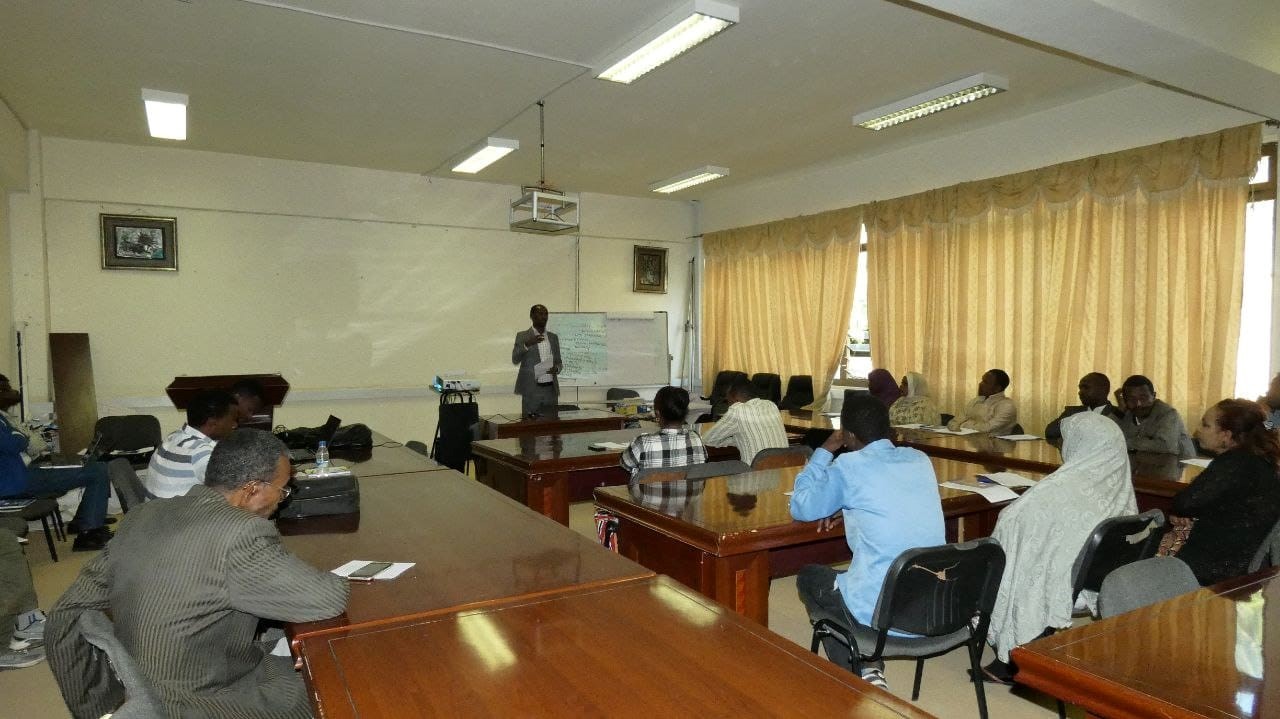
Haramaya University’s Vice President of Research and Community Engagement and Director of Research Groups and Partnerships, Dr.Deribachew Bekana, in his speech at the opening of the training, said that urban agriculture started a long time ago and spread in the 19th and 20th centuries.
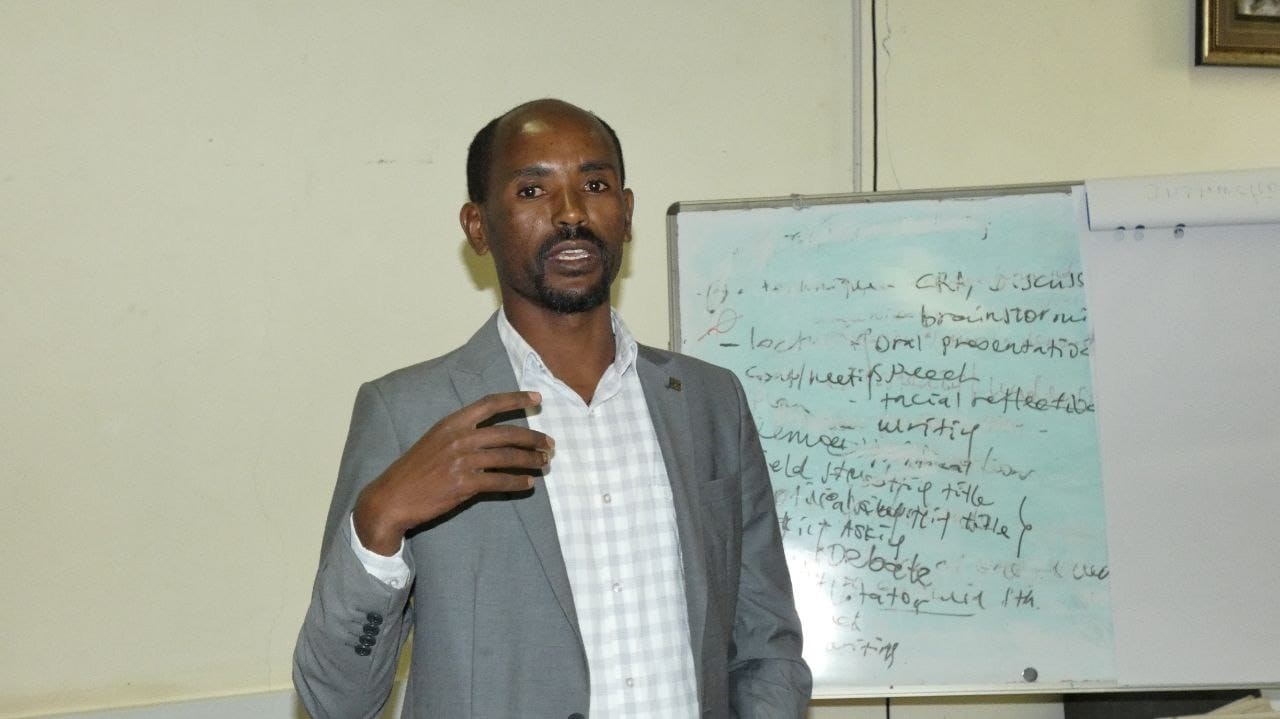
He also explained that it started in Ethiopia during the reign of Emperor Haile Selassie. Currently, the government understands the benefits of urban agriculture and is expanding urban agriculture in a modern way to increase production and productivity alongside conventional agriculture, he added.
Mr. Feysa Hundesa, who is the research coordinator of the Office of the Vice President of Research and Community Engagement at Haramaya University, explained that since the establishment of the University, it has been working to modernize the sector by conducting many research projects in the field of agriculture by providing training to farmers, providing the best improved seeds, and spreading various modern agricultural technologies.
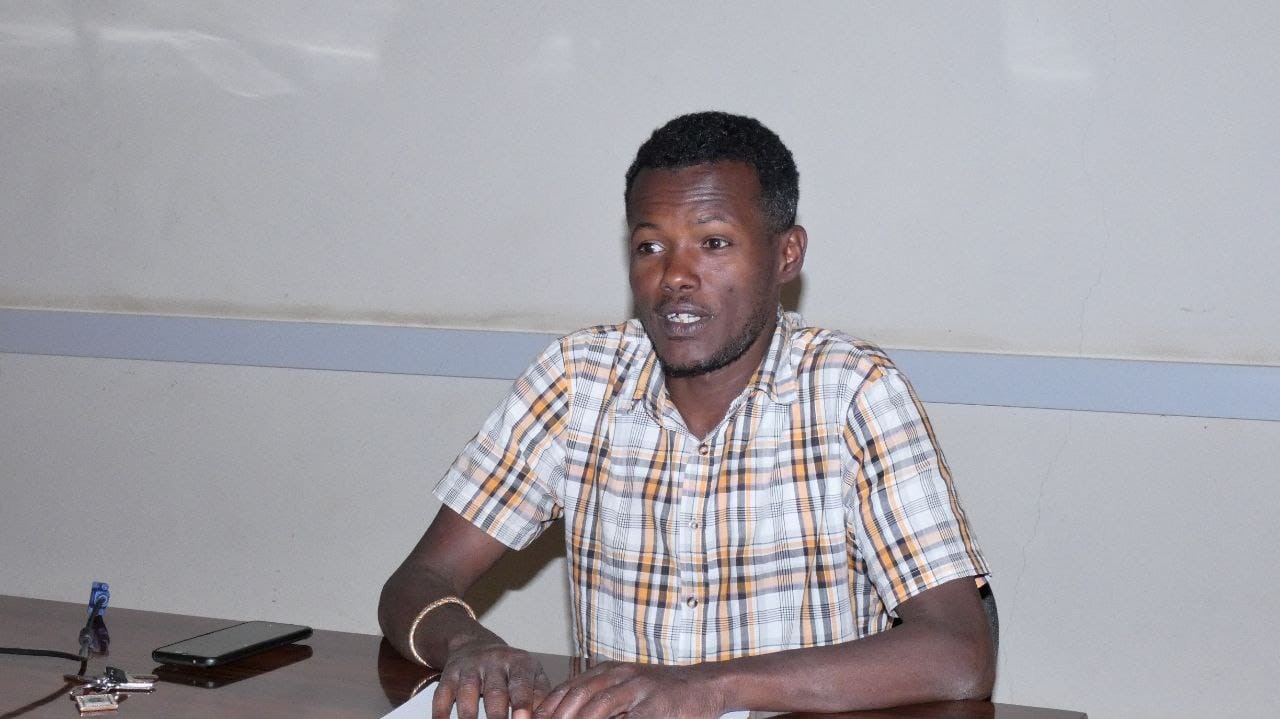
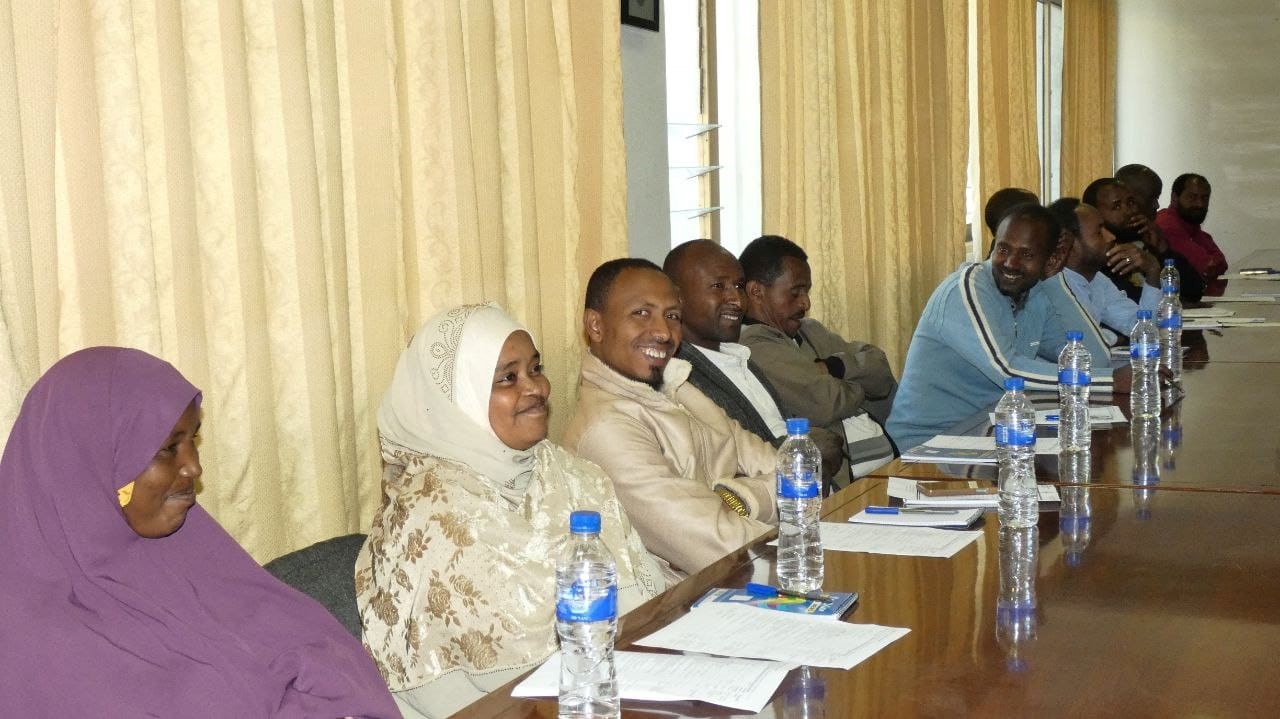
Mr. Feysa said that following the direction set by the government recently, in order to correct the food imbalance in the cities, Haramaya University has promoted the method in Maya, Harar and Dire Dawa cities so that the urban residents can grow vegetables in the small areas. The University has provided technical, resource and advisory support, he added.
Since urban agriculture has a significant contribution in terms of ensuring food security, experts in the field conduct research and any city dwellers can grow different vegetables on their piece of land and earn additional income, Mr. Feysa explained.

The trainees explained that many individuals are dreaming of growing various vegetables and fruits in the open spaces of their residences

Among the trainees, Mr. Kedir Ali, a resident of Aweday city, said that they are benefiting from covering their household consumption by using the land and various materials in the yard of their house.
Deputy Commander Abdulaziz Adam, a resident of Harar City and a member of the Harari Region Correctional Commission, explained that the prison is generating income for the prison by organizing legal prisoners into a union and selling fruits and vegetables to the residents.
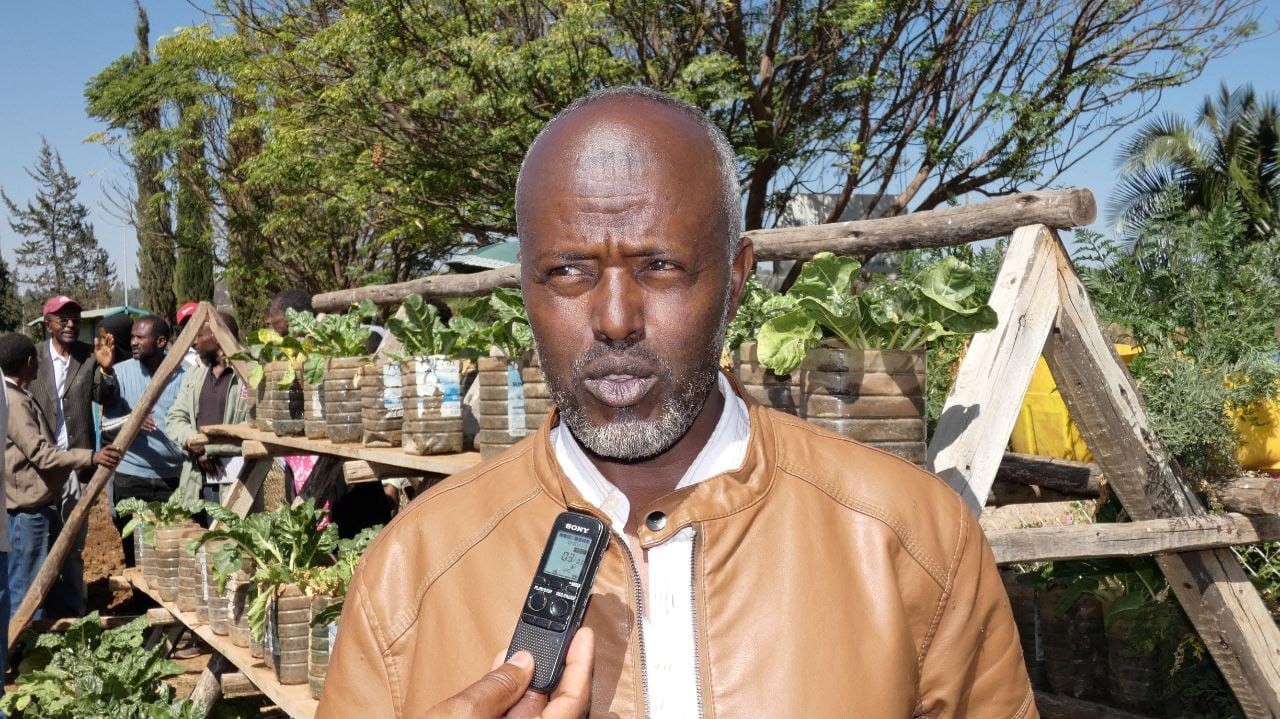
Deputy Commander Abdulaziz added that with the help of the knowledge gained from the training, they will try to be a role model by combining their experience with the training to increase their production by doing the work they are already doing in a scientific way.
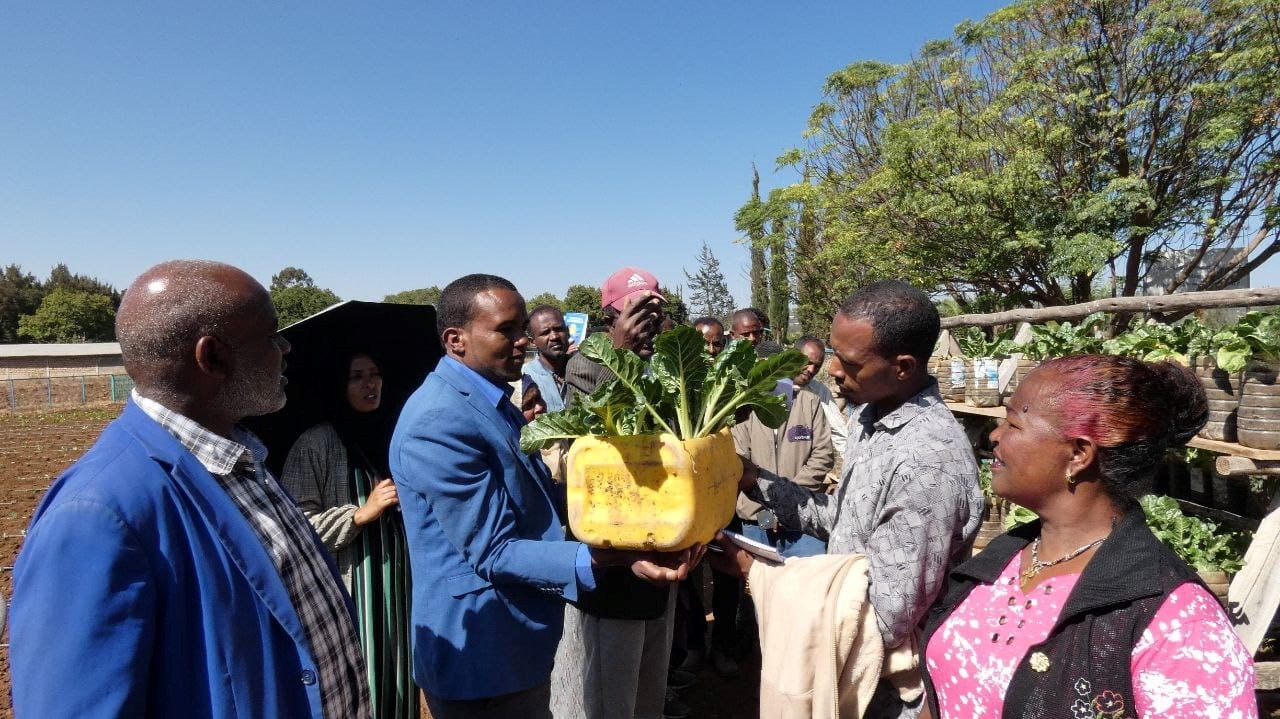
Deputy Commander Abdulaziz said that the training is helpful to the community to grow vegetables such as cabbage, lettuce and carrot in the limited space of the community with frequently used materials.
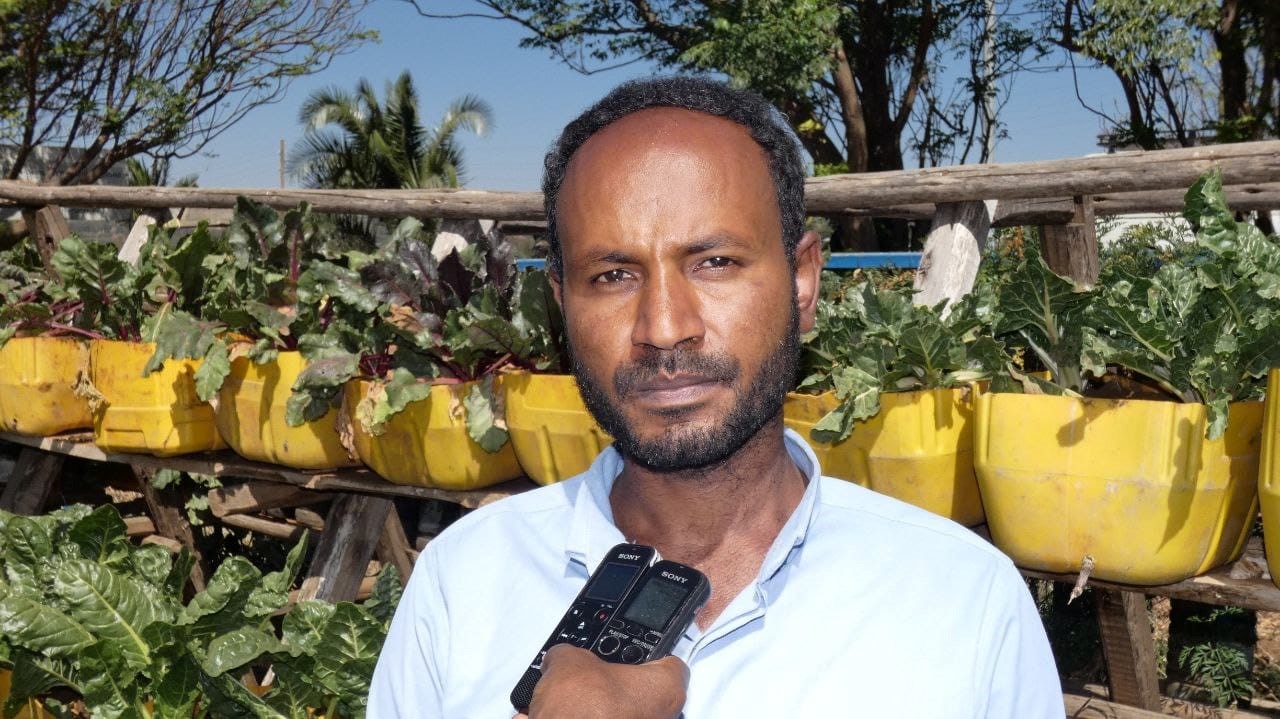
Mr. Ibrahim Lema, a resident of Dire Dawa and an agricultural extension expert, said that it is important to strengthen urban agriculture in order to ensure food security and achieve a balanced diet.
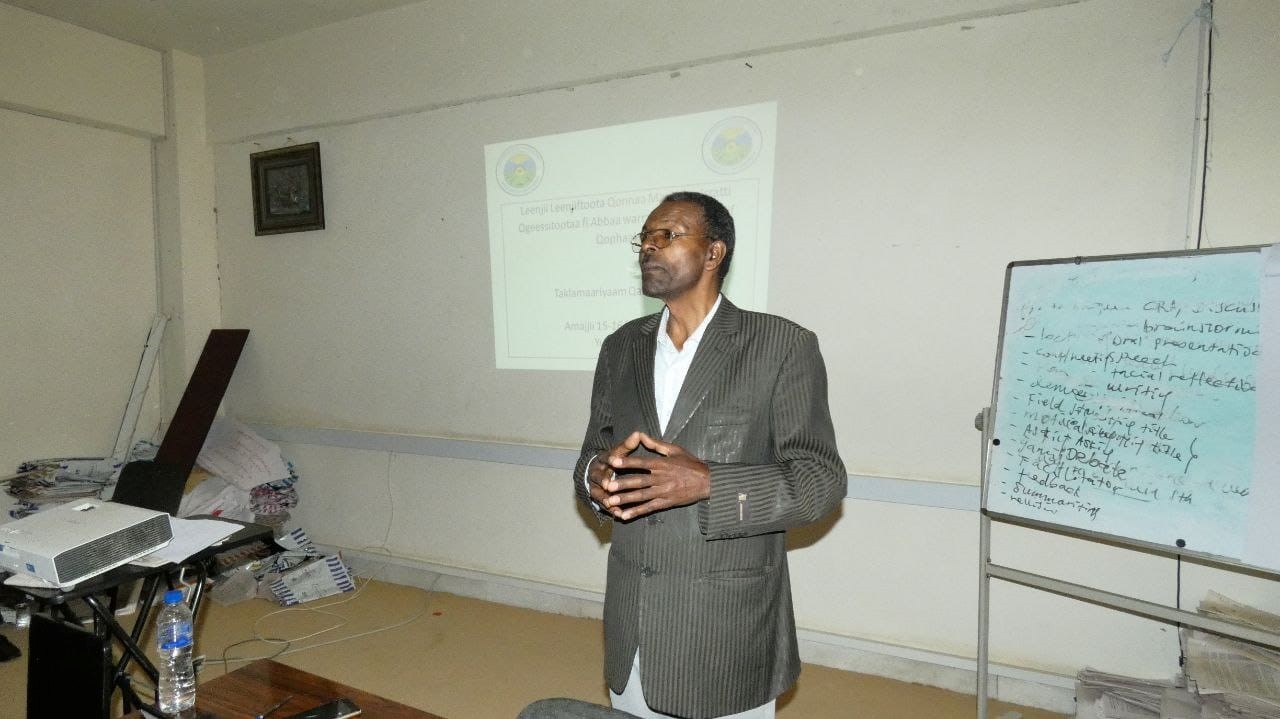
Haramaya University Urban Agriculture Project Coordinator, Dr. Teklamaryam Keneni, said during the training that since urban agriculture technology is new, Haramaya University organizes and improves the agricultural work that is being done by individuals and groups in every city with limited knowledge to connect with the urban community.
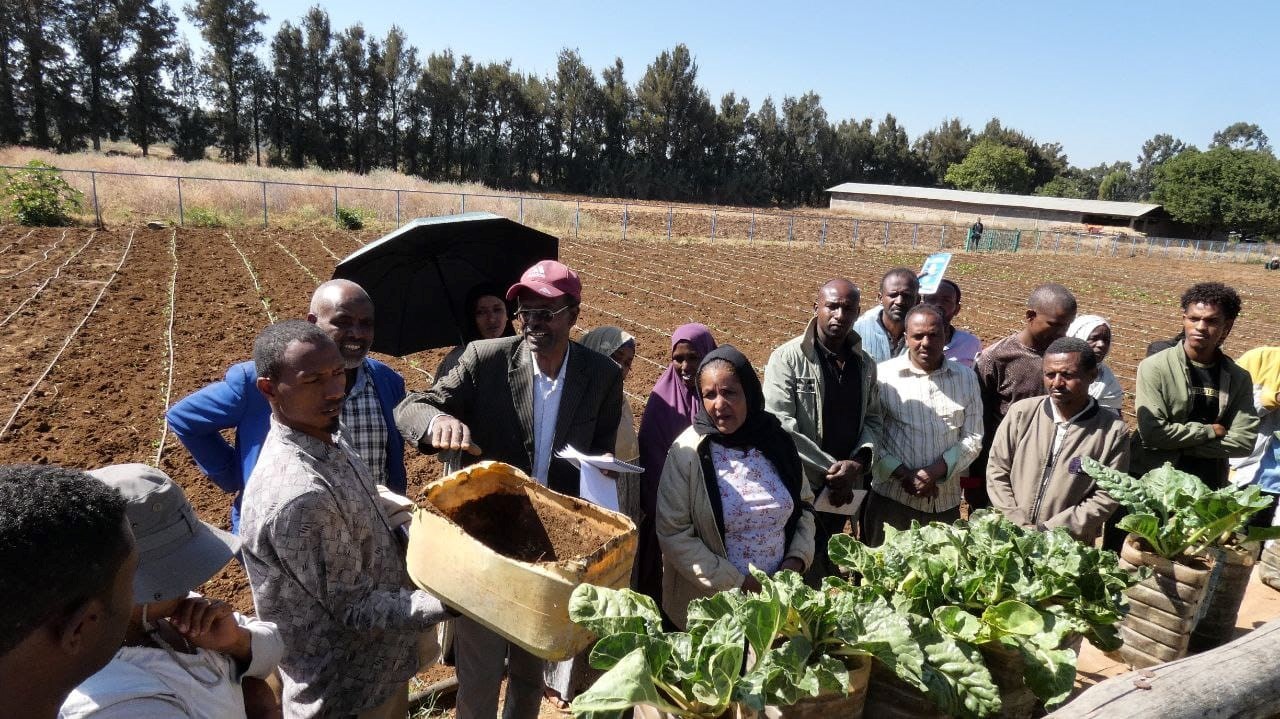
He explained that the needs of the garden should be followed by the professionals engaged in the field and the main urban residents and should follow a system supported by scientific research.
Dr. Teklemaryam emphasized that the trainees are expected to expand the work of modernizing urban agriculture by applying the knowledge they have acquired and the technology they have seen and sharing it with their neighbors.
By፦ Shemsedin Mohammed
Photographer- Tewodros Lishan
Haramaya University Public & International Relations Directorate

